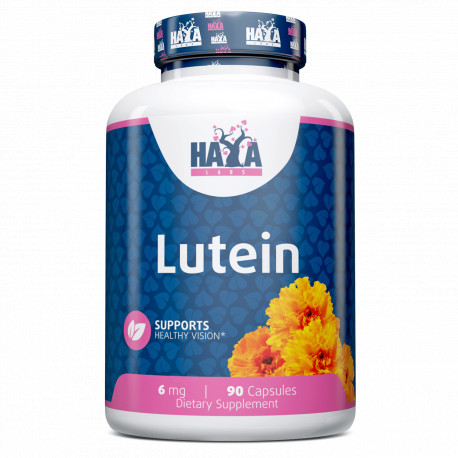Cart
0
Product
Products
(empty)
No products
To be determined
Shipping
0,00 €
Total
Product successfully added to your shopping cart
Quantity
Total
There are 0 items in your cart.
There is 1 item in your cart.
Total products
Total shipping
To be determined
Total
Lutein 6mg. / 90 caps.
New product
Lutein is a naturally occurring carotenoid found primarily in fruits and vegetables. When you take lutein, it is accumulated in the part of the eye called macula, which is a small area in the center of the retina.
More info
Lutein is a naturally occurring carotenoid found primarily in fruits and vegetables. When you take lutein, it is accumulated in the part of the eye called macula, which is a small area in the center of the retina. Scientists found that lutein protects the macula by filtering potentially dangerous forms of light. It is considered "natural sunglasses" because of its ability to protect eye from the destructive effects of radiation, playing the role of an optical filter and an antioxidant. Furthermore, some studies indicate that there is a direct relation between the consumption of lutein and pigmentation of the eye; studies suggest that an increase in macular pigment reduces the risk of eye diseases such as age-related macular degeneration. Corn, egg yolk, spinach, cabbage, lettuce, peas and leeks, onions – all of them contain high concentrations of lutein.
Research shows:
- Main carotenoid contained in the eye
- Several studies demonstrate a significant protection against the type of destruction, leading to macular degeneration.
- In people who are in the top 20% taking lutein, there was observed half less likelihood of developing a cataract, in comparison with people of the last 20% taking lutein.
Recommended dosage:
A typical daily dosage ranges from 6-10 mgs: take 1 capsule, 1-2 times a day, with food.
Reviews
No customer reviews for the moment.



